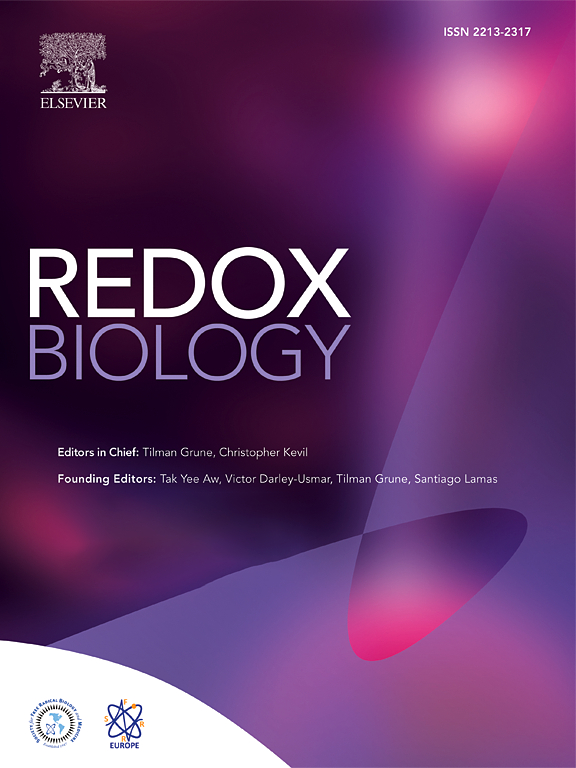ProteotoxomiRs: Diagnostic and pathologic miRNA signatures for reductive stress induced proteotoxic heart disease
IF 10.7
1区 生物学
Q1 BIOCHEMISTRY & MOLECULAR BIOLOGY
引用次数: 0
Abstract
Proteotoxic stress progressively leads to irreversible cardiac abnormalities. Using a mouse model of reductive stress-induced proteotoxic cardiomyopathy, we identified novel microRNA signatures, termed “ProteotoxomiRs,” which reflect stage-specific and transgene-specific responses to proteotoxic stress. Seven microRNAs were uniquely linked to the human mutant R120G-αB-Crystallin transgene, indicating their direct association with the pathogenic protein. Additionally, we uncovered two distinct microRNA profiles associated with the early (pre-onset) and late (cardiomyopathy/heart failure) stages of disease progression. Early-stage signatures primarily modulate signaling pathways essential for cardiac health, including mTOR and MAPK, while late-stage signatures reveal regulatory disruptions in calcium signaling and autophagy insufficiency, driving irreversible cardiac damage caused by reductive stress (RS) and proteotoxicity in transgenic mice. These findings reveal stage-specific miRNA biomarkers with potential diagnostic and prognostic value, offering new insights into the molecular underpinnings of proteotoxic cardiac disease. Moreover, our miRNA-mRNA interaction analysis uncovered potential targets unique to the transgene-specific, early, and late stages of the disease, including several promising druggable candidates, warranting further validation for translational applications.

求助全文
约1分钟内获得全文
求助全文
来源期刊

Redox Biology
BIOCHEMISTRY & MOLECULAR BIOLOGY-
CiteScore
19.90
自引率
3.50%
发文量
318
审稿时长
25 days
期刊介绍:
Redox Biology is the official journal of the Society for Redox Biology and Medicine and the Society for Free Radical Research-Europe. It is also affiliated with the International Society for Free Radical Research (SFRRI). This journal serves as a platform for publishing pioneering research, innovative methods, and comprehensive review articles in the field of redox biology, encompassing both health and disease.
Redox Biology welcomes various forms of contributions, including research articles (short or full communications), methods, mini-reviews, and commentaries. Through its diverse range of published content, Redox Biology aims to foster advancements and insights in the understanding of redox biology and its implications.
 求助内容:
求助内容: 应助结果提醒方式:
应助结果提醒方式:


